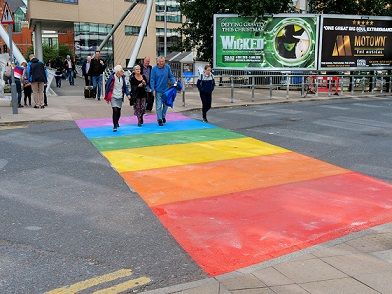In most places when you cross the road at traffic lights on a pedestrial crossing, you are assisted by a red or green figure that is obviously masculine.
However that could soon change if a local politicians in Aarhus and Copenhagen have their way.
Abolishing stereotyping
According to Kristeligt Dagblad, the deputy mayor for culture and leisure in Copenhagen, Franciska Rosenkilde, feels that it is important for a major city to signal that it respects all facets of gender identity.
“This is a really good way to do away with the gender stereotypes we see everywhere and it is an idea that is interesting to pursue. Copenhagen is a city with a great deal of diversity and libertarian outlook and we ought to be proud to show it,” said Rosenkilde.
Copenhagen Municipality has already changed the male pictogram on a number of crossings to show one wearing a skirt.
READ ALSO: Him, Her and Zim: Pronoun usage a hot topic at universities
A number of other cities worldwide such as London, Manchester, Munich and Cologne have already gone over to gender-neutral traffic lights.
The more the merrier
Asked whether the current male/female figures are also out of date if you want to include non-binary people or same-sex couples the deputy mayor answered that there might be some truth in that.
Copenhagen councillor Christopher Røhl Andersen is all in favour of going further.
“It’s an exciting development that a number of cities now have traffic signals that are not only man/woman and it’s a logical step for Copenhagen, so that everybody could feel respected and see a role model in public spaces,” he said.
“This is definitely something that is logical to take further in the run-up to 2021 when Copenhagen will play host to World Pride,” said Andersen.
A city councillor in Aarhus, Lone Norlander Smith, intends to add the idea to the agenda there too.
















